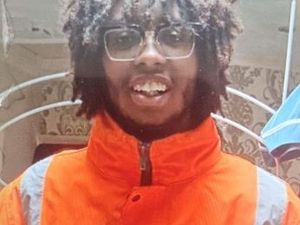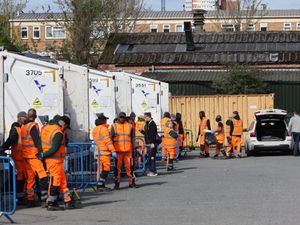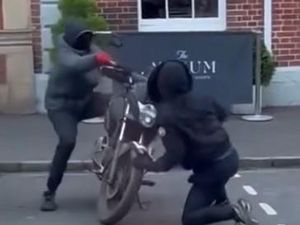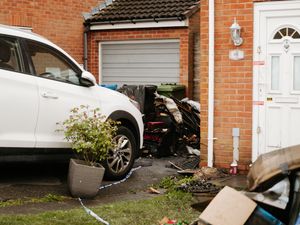Bloody memories for child of the Raj
From the moment I opened Tony Hearne's typed, re-typed and much-corrected manuscript last year, I knew I was reading a classic, writes Peter Rhodes.
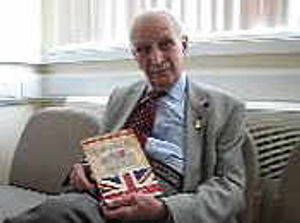
From the moment I opened Tony Hearne's typed, re-typed and much-corrected manuscript last year, I knew I was reading a classic, writes Peter Rhodes.
Here, in intricate and sometimes agonising detail, was his eye-witness account of the Army quitting India in 1947 after 200 years of British rule – and the bloody nightmare of Partition as Pakistan was created as a separate Muslim state.
An estimated one million Hindus and Muslims perished and 12 million were made homeless. Tony Hearne, now 82 and living in Wombourne, saw some of the atrocities and killed a number of terrorists in self-defence.
He was a child of the British Raj, a son of a colonial civil servant and magistrate in Lahore. Educated at the famous St George's College in the Himalayas, Tony served in the Ordnance Corps during the Second World War, supplying the troops in Burma with thousands of tons of everything from bullets to beans. He rose to become Conductor of Ordnance, the most senior NCO in the British Army.
When the war ended in 1945, India's long-running demand for independence from Britain could no longer be denied. But the speed of the British withdrawal took many by surprise.
As Tony Hearne relates in his memoirs: "It seemed impossible that this wonderful lifestyle, unequalled in any other colony of the Empire would, within a few short years, be shattered after a horrific sectarian blood bath, also unequalled in the history of the Empire."
A year after parts of his book were serialised in the Express & Star, he has published it as Farewell Raj. The book was launched yesterday at Wombourne Library where he signed copies of the book.
He says: "The book wasn't really hard work because, although I'd spent 20-odd years putting it together, it was fact and not fiction. All I had to do was put it down in chronological order.
"There's a lot of gruesome stuff because I was compelled under circumstances to kill people. But I don't have any demons about it."
His daughter Sharon Hearne, 55, says: "He really enjoyed himself at the launch. There was such a mix of young and old, it was almost like a wedding. One of the lovely things was that both my dad and my aunt, Irene Lawrence, who is 92, met a number of people who also grew up in India and went to the same schools.
"There were two gentlemen who went to my dad's school, St George's and one of them, Basil de Souza, has already emailed us with photographs from the launch. They will keep in touch. It was the culmination of several years' work. We say he didn't really write the book, it just kind of fell out of his head, he had thought about it for so long."
There was certainly much to recall. In August 1947, on the troop train headed from Calcutta to Lahore, Tony Hearne became the only European to witness a slaughter which, he believes, was orchestrated by the Indian Army in revenge for an earlier atrocity by Muslims.
The train was suddenly raked with rifle and machine-gun fire. Splinters of steel and wood flew across the compartment.
One of two young officers sitting opposite Tony Hearne slumped dead. A gunman appeared at the window with a shotgun and fired, point-blank.
"It took the head off the other officer," recalled Mr Hearne. "There was blood all over the compartment."
The killer bobbed down to re-load his shotgun. A few seconds later he appeared again at the window and aimed his weapon at a wounded soldier. But by then Tony was ready.
"I remembered something my father had told me. Never point a gun at someone unless you intend to kill them. I shot him. His gun went off but it just blew a hole in the ceiling."
After killing the man, Tony Hearne grabbed the wounded soldier and escaped.
His last view of his adopted land came in February 1948 when his troopship sailed from Karachi. He remembers it in loving detail:
"The open decks of the troop-ship were crowded with soldiers four-deep looking over the side.
"There was a slight vibration throughout the ship, a churning and turbulence of the water, another blast on the horns. A single corporal marched to the flag pole, saluted and began to lower the Union Flag very slowly while the band beat Retreat.
"The ship fell silent in the reverence. The band was still playing on the quayside, the corporal reverently folding the flag, the crimson sun poised above the horizon of the Arabian Sea.
"Then as a last gesture of severance, a single soldier removed his headgear, the tropical pith helmet, and hurled it into the sea. This was followed by a huge cheer and a thousand pith helmets descending into the water from every deck level.
"There was nothing else anyone could do except, to the fading sounds of the national anthem, say: Farewell, Raj."
* Farewell Raj: Witness to End of Empire is published by Tommies Guides at £11.95

